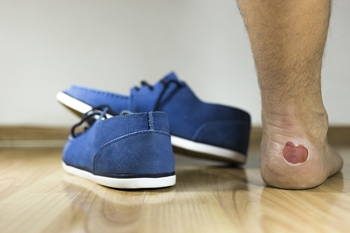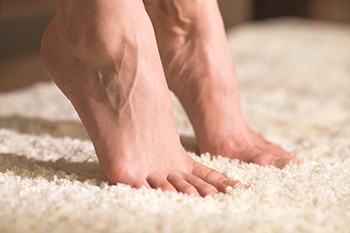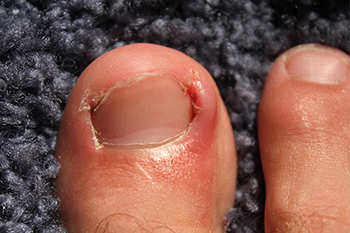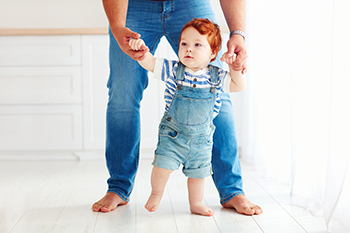Items filtered by date: April 2023
Socks and Blisters

Blisters on the feet are often a result of the shoes rubbing against the skin. Additionally, friction blisters may also be a result of wearing socks that do not fit correctly. For example, sock blisters can form when harsh materials in the sock interact with the foot. Specifically, wool is a material that may cause blisters to develop. Despite the fact that socks can sometimes cause foot blisters, the right pair of socks can also prevent them from forming. Since sweat on the feet can make the feet more susceptible to developing blisters, it is suggested that moisture-wicking socks are worn that will help keep the feet drier. When it comes to selecting a good pair of socks, it is beneficial to inquire about the quality of the sock. If you are currently living with blisters on your feet, and are looking for effective prevention methods, it is suggested that you contact a podiatrist today for information and treatment.
Blisters are prone to making everyday activities extremely uncomfortable. If your feet are hurting, contact one of our podiatrists of Centers for Foot & Ankle Care. Our doctors can provide the care you need to keep you pain-free and on your feet.
Foot Blisters
Foot blisters develop as a result of constantly wearing tight or ill-fitting footwear. This happens due to the constant rubbing from the shoe, which can often lead to pain.
What Are Foot Blisters?
A foot blister is a small fluid-filled pocket that forms on the upper-most layer of the skin. Blisters are filled with clear fluid and can lead to blood drainage or pus if the area becomes infected.
How Do Blisters Form?
Blisters on the feet are often the result of constant friction of skin and material, usually by shoe rubbing. Walking in sandals, boots, or shoes that don’t fit properly for long periods of time can result in a blister. Having consistent foot moisture and humidity can easily lead to blister formation.
Prevention & Treatment
It is important to properly care for the affected area in order to prevent infection and ease the pain. Do not lance the blister and use a Band-Aid to provide pain relief. Also, be sure to keep your feet dry and wear proper fitting shoes. If you see blood or pus in a blister, seek assistance from a podiatrist.
If you have any questions, please feel free to contact one of our offices located in Merrillville, Portage, Michigan City/LaPorte, and Schererville, IN . We offer the newest diagnostic and treatment technologies for all your foot care needs.
Balance Exercises Can Prevent Falls

Weak muscles and lack of strength are one of the main causes of falling, especially among seniors whose lifestyle has become more sedentary. One way to prevent falling is to perform exercises that improve foot strength and balance. It’s a good idea to have someone with you while performing such exercises and to do them while lightly touching a wall, countertop, or chairback. Start with a few repetitions and gradually increase them as your muscles and confidence get stronger. Heel raises are specifically designed to build ankle strength, which is essential in keeping your balance. Raise the heels by rising up onto the ball of the feet and hold for a few seconds. Then slowly lower the heels. Repeat. Toe raises help to strengthen the muscles in the front of the foot, which is used when stepping over obstacles. Holding onto the chairback, raise the toes up as far as you can while also standing tall and keeping the stomach muscles tight. Lower and repeat. For more information on exercises to prevent falling, it is suggested that you consult a podiatrist.
Preventing falls among the elderly is very important. If you are older and have fallen or fear that you are prone to falling, consult with one of our podiatrists from Centers for Foot & Ankle Care. Our doctors will assess your condition and provide you with quality advice and care.
Every 11 seconds, an elderly American is being treated in an emergency room for a fall related injury. Falls are the leading cause of head and hip injuries for those 65 and older. Due to decreases in strength, balance, senses, and lack of awareness, elderly persons are very susceptible to falling. Thankfully, there are a number of things older persons can do to prevent falls.
How to Prevent Falls
Some effective methods that older persons can do to prevent falls include:
- Enrolling in strength and balance exercise program to increase balance and strength
- Periodically having your sight and hearing checked
- Discuss any medications you have with a doctor to see if it increases the risk of falling
- Clearing the house of falling hazards and installing devices like grab bars and railings
- Utilizing a walker or cane
- Wearing shoes that provide good support and cushioning
- Talking to family members about falling and increasing awareness
Falling can be a traumatic and embarrassing experience for elderly persons; this can make them less willing to leave the house, and less willing to talk to someone about their fears of falling. Doing such things, however, will increase the likelihood of tripping or losing one’s balance. Knowing the causes of falling and how to prevent them is the best way to mitigate the risk of serious injury.
If you have any questions, please feel free to contact one of our offices located in Merrillville, Portage, Michigan City/LaPorte, and Schererville, IN . We offer the newest diagnostic and treatment technologies for all your foot care needs.
It's Time for Beautiful Feet
Reasons an Ingrown Toenail May Develop

Infection, swelling, and pain can accompany an ingrown toenail. Genetic reasons may cause this foot condition, or it may happen from wearing shoes that are too tight. An ingrown toenail is defined as the nail growing into the skin instead of over it, and it generally affects the big toe. It may also develop from cutting the toenails incorrectly, or if there has been a foot injury. An ingrown toenail that is first noticed may feel better when the foot is soaked in warm water for several minutes. This can make it easier to gently pull the nail away from the skin by using a small piece of cotton. Severely infected nails are often treated by a podiatrist who can accurately diagnose this condition, and offer helpful prevention methods. If you are afflicted with an ingrown toenail, it is suggested that you consult with this type of doctor who can prescribe medication, and possibly perform minor surgery for permanent relief.
Ingrown toenails can become painful if they are not treated properly. For more information about ingrown toenails, contact one of our podiatrists of Centers for Foot & Ankle Care. Our doctors can provide the care you need to keep you pain-free and on your feet.
Ingrown Toenails
Ingrown toenails occur when a toenail grows sideways into the bed of the nail, causing pain, swelling, and possibly infection.
Causes
- Bacterial infections
- Improper nail cutting such as cutting it too short or not straight across
- Trauma to the toe, such as stubbing, which causes the nail to grow back irregularly
- Ill-fitting shoes that bunch the toes too close together
- Genetic predisposition
Prevention
Because ingrown toenails are not something found outside of shoe-wearing cultures, going barefoot as often as possible will decrease the likeliness of developing ingrown toenails. Wearing proper fitting shoes and using proper cutting techniques will also help decrease your risk of developing ingrown toenails.
Treatment
Ingrown toenails are a very treatable foot condition. In minor cases, soaking the affected area in salt or antibacterial soaps will not only help with the ingrown nail itself, but also help prevent any infections from occurring. In more severe cases, surgery is an option. In either case, speaking to your podiatrist about this condition will help you get a better understanding of specific treatment options that are right for you.
If you have any questions please feel free to contact one of our offices located in Merrillville, Portage, Michigan City/LaPorte, and Schererville, IN . We offer the newest diagnostic and treatment technologies for all your foot and ankle needs.
Shoes for Pre-Walkers

When a new parent has a baby, they often have many questions about what they should be doing to protect the health of their newborn’s feet. For example, new parents often have questions about what shoes they should be buying for their newborn before they can walk. Sometimes, parents will put shoes on their newborn before they can walk for style purposes or to keep their newborn’s feet warm. In this case, parents can consider shopping for baby shoes that have soft soles. Admittedly, shoes for pre-walking infants serve a primarily decorative purpose. However, if your pre-walking infant wears soft-sole shoes, this might helpfully keep a pair of socks on your infant’s feet. If you are a new parent with a pre-walking infant, it is suggested that you consult with a podiatrist to ensure that you are doing everything you can to maintain the health of your infant’s feet.
Making sure that your children maintain good foot health is very important as they grow. If you have any questions, contact one of our podiatrists of Centers for Foot & Ankle Care. Our doctors can provide the care you need to keep you pain-free and on your feet.
Keeping Children's Feet Healthy
Having healthy feet during childhood can help prevent medical problems later in life, namely in the back and legs. As children grow, their feet require different types of care. Here are some things to consider...
Although babies do not walk yet, it is still very important to take care of their feet.
Avoid putting tight shoes or socks on his or her feet.
Allow the baby to stretch and kick his or her feet to feel comfortable.
As a toddler, kids are now on the move and begin to develop differently. At this age, toddlers are getting a feel for walking, so don’t be alarmed if your toddler is unsteady or ‘walks funny’.
As your child gets older, it is important to teach them how to take care of their feet.
Show them proper hygiene to prevent infections such as fungus.
Be watchful for any pain or injury.
Have all injuries checked by a doctor as soon as possible.
Comfortable, protective shoes should always be worn, especially at play.
If you have any questions please feel free to contact one of our offices located in Merrillville, Portage, Michigan City/LaPorte, and Schererville, IN . We offer the newest diagnostic and treatment technologies for all your foot and ankle needs.

